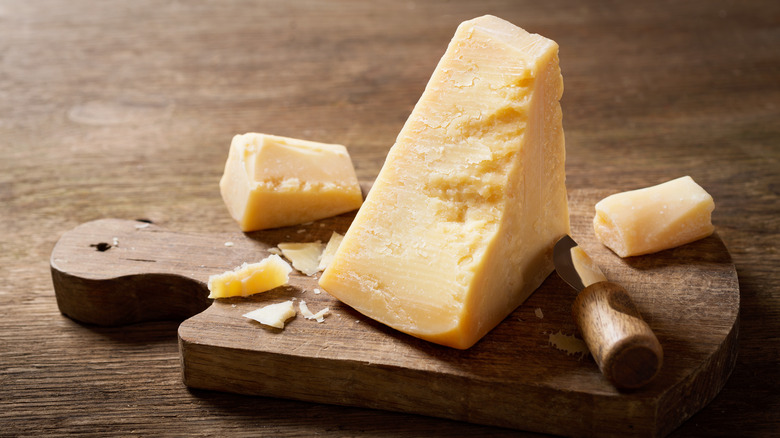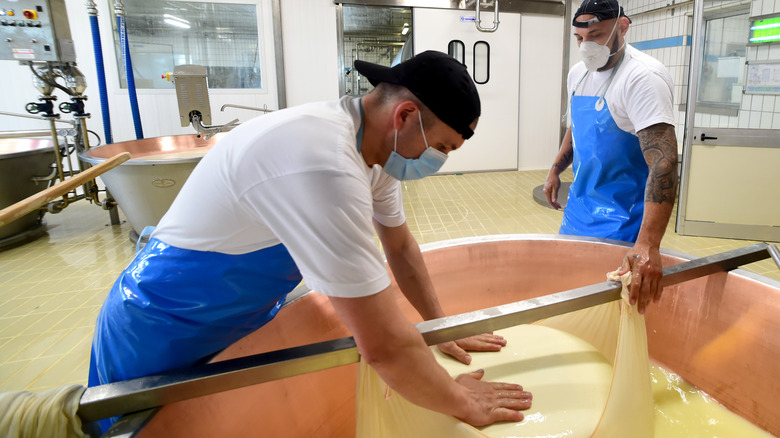The Real Reason Parmesan Cheese Isn't Vegetarian
If you're a vegetarian, we're guessing you're probably a big fan of cheese. Most of us are, even if we still eat meat because cheese is just so darn good, but if you've given up meat, cheese is a good source of healthy proteins, fats, and of course, flavor (via Harvard). We aren't trying to burst your bubble, but there are a few things you should know about certain cheeses that, sadly, aren't technically vegetarian. Are you sitting down for this one? You might want to.
Some Italian cheeses like Pecorino Romano, Grana Padano, and Gorgonzola, as well as a few French and Swiss cheeses like Camembert, Vacherin, Emmenthaler, and Gruyère, and even Spanish Manchego, all use an ingredient called rennet in the cheese-making process (via AllRecipes). Rennet plays "a crucial role in making Parmesan cheese what it is," specifically due to a component of rennet called chymosin, which helps "separate solids from liquids in the cheesemaking process," per AllRecipes. But what exactly is rennet?
Rennet is found in a calf's stomach
We hate to be the ones to tell you this, but this essential ingredient used in the process of making some truly delicious cheeses is actually found in the stomach of young calves. Rennet is an enzyme that aids in coagulation, helping to separate milk into the delicious solid curds we know and love (via Business Insider).
Technically, "a cheese can only meet the European Union's legal definition of Parmesan if it's produced in the 'Reggiano' region of Italy using nothing more than cow's milk, salt, and calf rennet," according to AllRecipes. There are some versions that use vegetable rennet or microbial enzymes to produce these cheeses, but this can be less common, AllRecipes notes. If you're trying to follow a strict vegetarian diet or simply avoid rennet, we recommend double-checking labels and making sure you aren't accidentally consuming cheeses produced with rennet. For anyone who isn't overly concerned, you're welcome for this new tidbit of knowledge about the process of creating a truly delicious cheese.

